Outline 002: RULES
rituals, routines, resolutions: some artists’ lists & directives.
In, out, up, down, forward, back: the dial shifts a degree and spawns lists left and right, what you missed, what your data told, what you learned, what you failed to, what you’ll achieve for sure now, yes, now’s the time, new moon on the horizon saying out with the old and something else about Pluto. But I drag my feet. Not nostalgia nor reliving, just a desire to run back the track and dance it again. Even slower this time. Slowed and reverbed. Riverbed— that’s my speed. Here’s a truth I’m working on: beauty is survival cloaked in vanity. Here’s some advice: a sporadically numbered list in no order, nearly none of it contemporary, all in, to be sure.
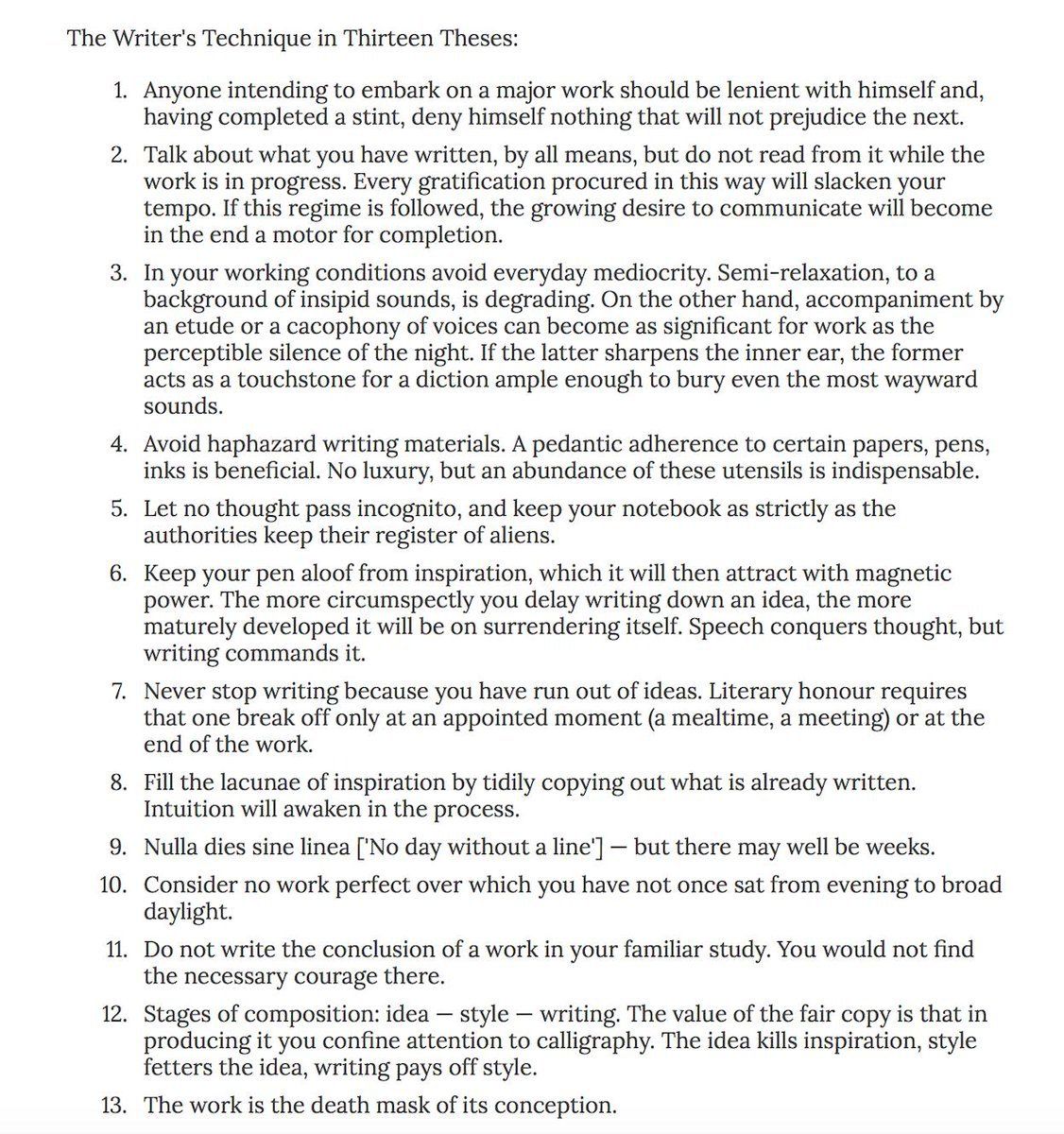
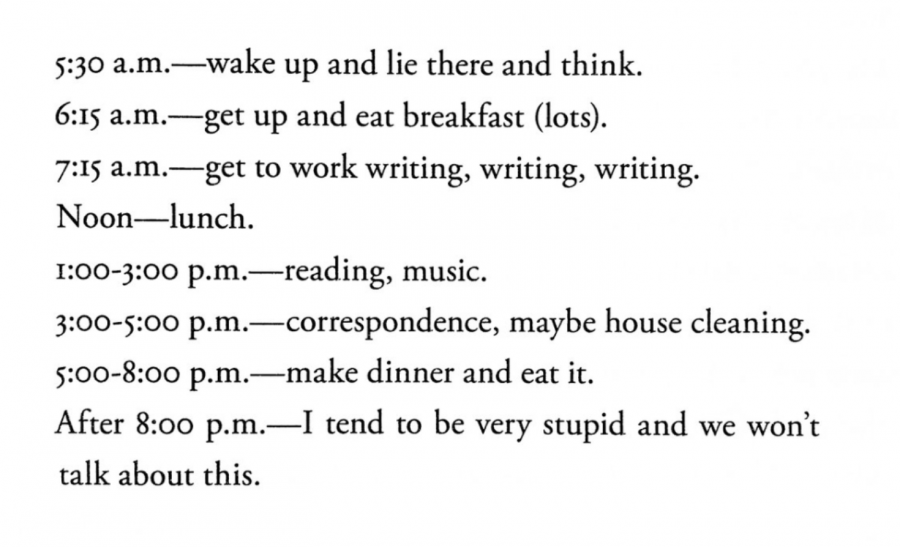
I had a teacher once whose advice was to put a book of poetry by your bed, then read one poem before going to sleep, and one poem the moment you wake up. That way the poem you read before sleep would seep into your dreams, and the poem you read when you wake would be jarring and almost in dreamscape because you’re still groggy, trying to figure out the language.
— Devin Kelly "on Allowing Yourself to Be Surprised," interview by Denise S. Robbins
2. Surrender to your obsessions. There is nothing better. Obsessions are the relics of childhood. And the most precious treasures come from the depths of childhood. You need to always keep the gate to your childhood open. It is not about specific memories, it’s about feelings. It’s not about consciousness, it’s about unconsciousness. Let the inner river flow freely through you. Concentrate on it but at the same time relax completely. When making your film, you need to be 24 hours submerged ‘in it’. Only then will all your obsessions, your childhood, enter your film, without you being consciously aware of it. And your film will become the triumph of ‘infantilism’. And that is what it’s all about.
— Jan Svankmajer, “Decalogue”

The reading regimen is as follows— while writing poetry, read philosophy or natural history; while writing fiction, read poetry; after, but not before or during writing poetry, read fiction. These rules of reading keep the compartments of poetry and prose fiction pristine. It is really the poetry that demands this regimen, it is a fragile and impressionable art so all means have to be employed to protect it from excess while feeding it with infusion of practical, scientific, and philosophical propositions. Almanacs.
— Dionne Brand, The Blue Clerk
I research and write in separate stages. I read widely and takes tons and tons of notes, and then I begin writing. I rarely consult the notes, but simply begin writing. What I recall most clearly – or the details that emerge from the file or document – are the beginnings of the story or narrative. What I remember and where I start is with the detail that is the equivalent of the punctum, the moment of a life, the shape of an object, the darkness of a room, that solicits me, most often because it represents an opening or a detour.
— Saidiya Hartman, interview by Victoria Adukwei Bulley
3. Cinema Verité confounds fact and truth, and thus plows only stones. And yet, facts sometimes have a strange and bizarre power that makes their inherent truth seem unbelievable.
4. Fact creates norms, and truth illumination.
5. There are deeper strata of truth in cinema, and there is such a thing as poetic, ecstatic truth. It is mysterious and elusive, and can be reached only through fabrication and imagination and stylization.
6. Filmmakers of Cinema Verité resemble tourists who take pictures of ancient ruins of facts.
7. Tourism is sin, and travel on foot virtue.
— Werner Herzog, "Minnesota Declaration"
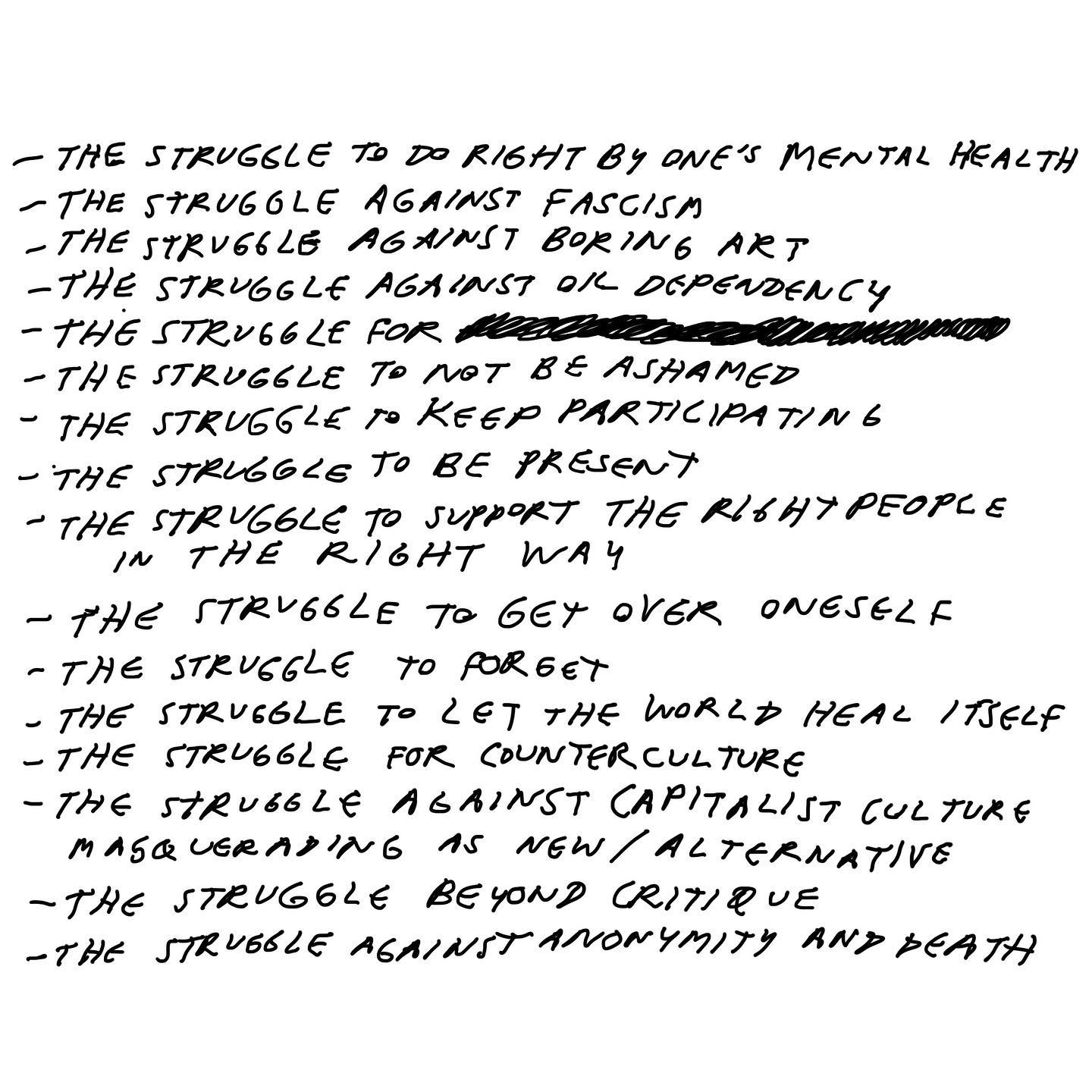
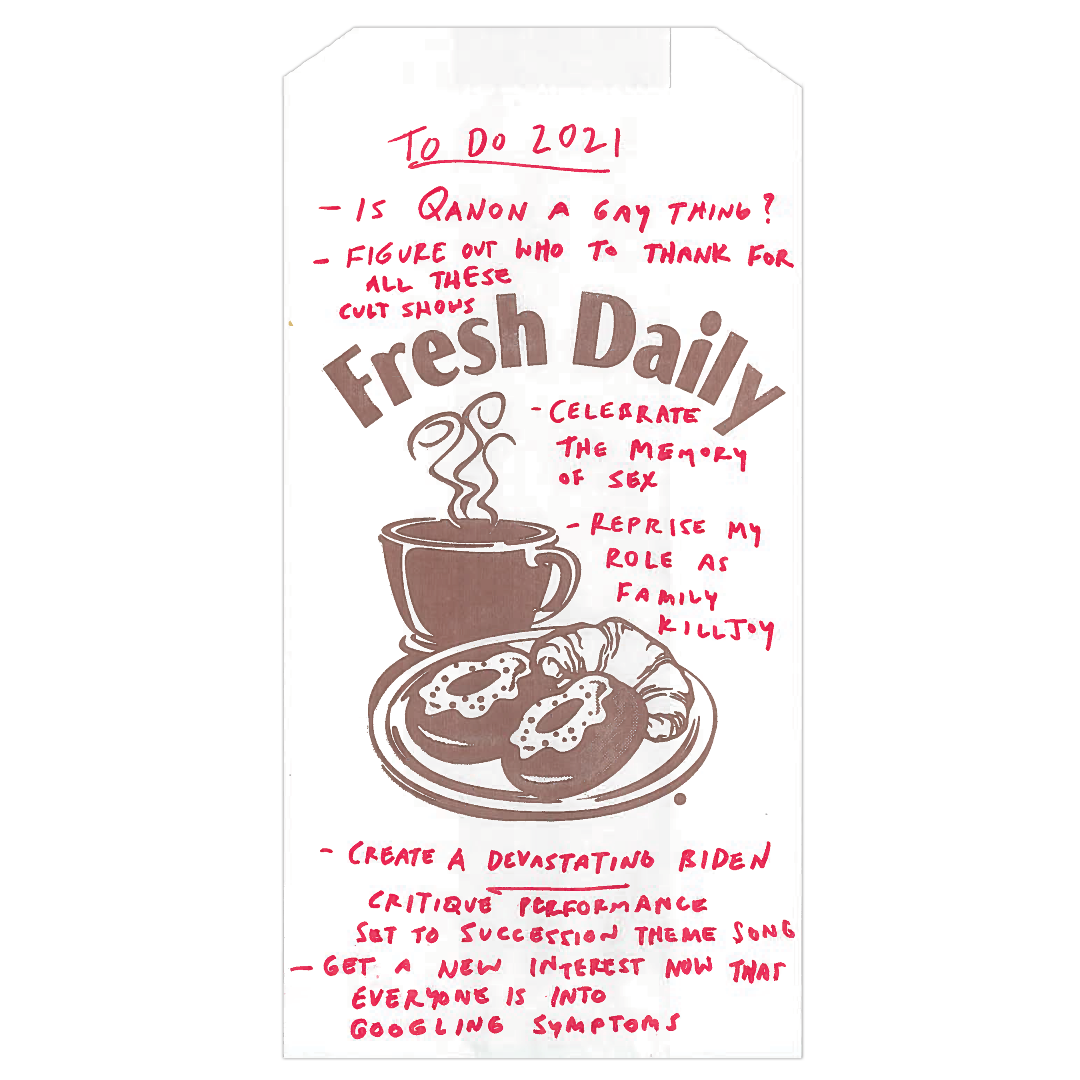
Form is never more than an extension of content.
— Robert Creeley, quoted by Charles Olson in “Projective Verse”
Form is never more than a revelation of content.
— Denise Levertov, “Some Notes on Organic Form”
“It takes a large tree to produce enough heat to melt the ore to get enough metal to make something the size of a belt buckle.”
— Toby Hemenway, quoted by Ted Hargrave in "Kicking The Robot Dog"
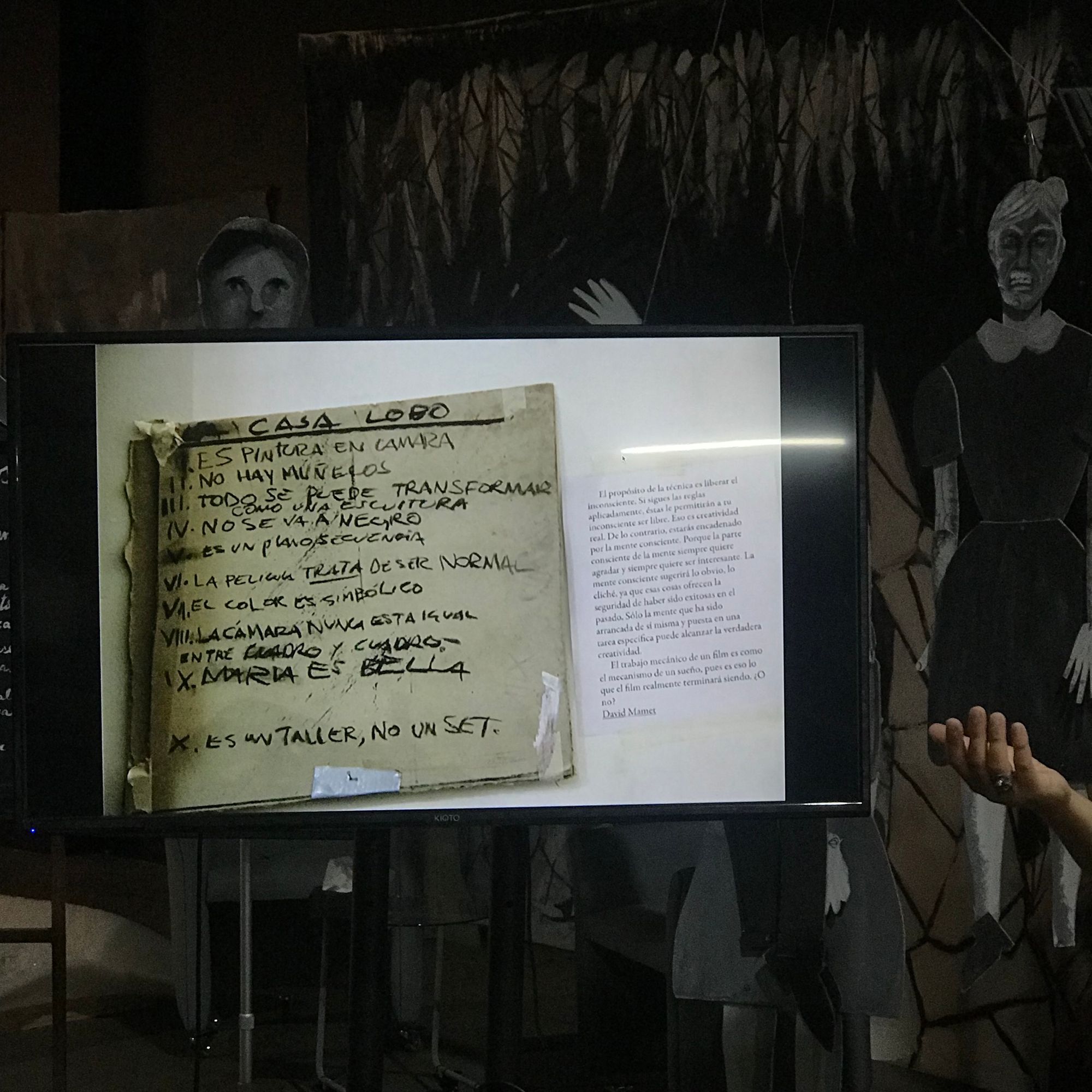
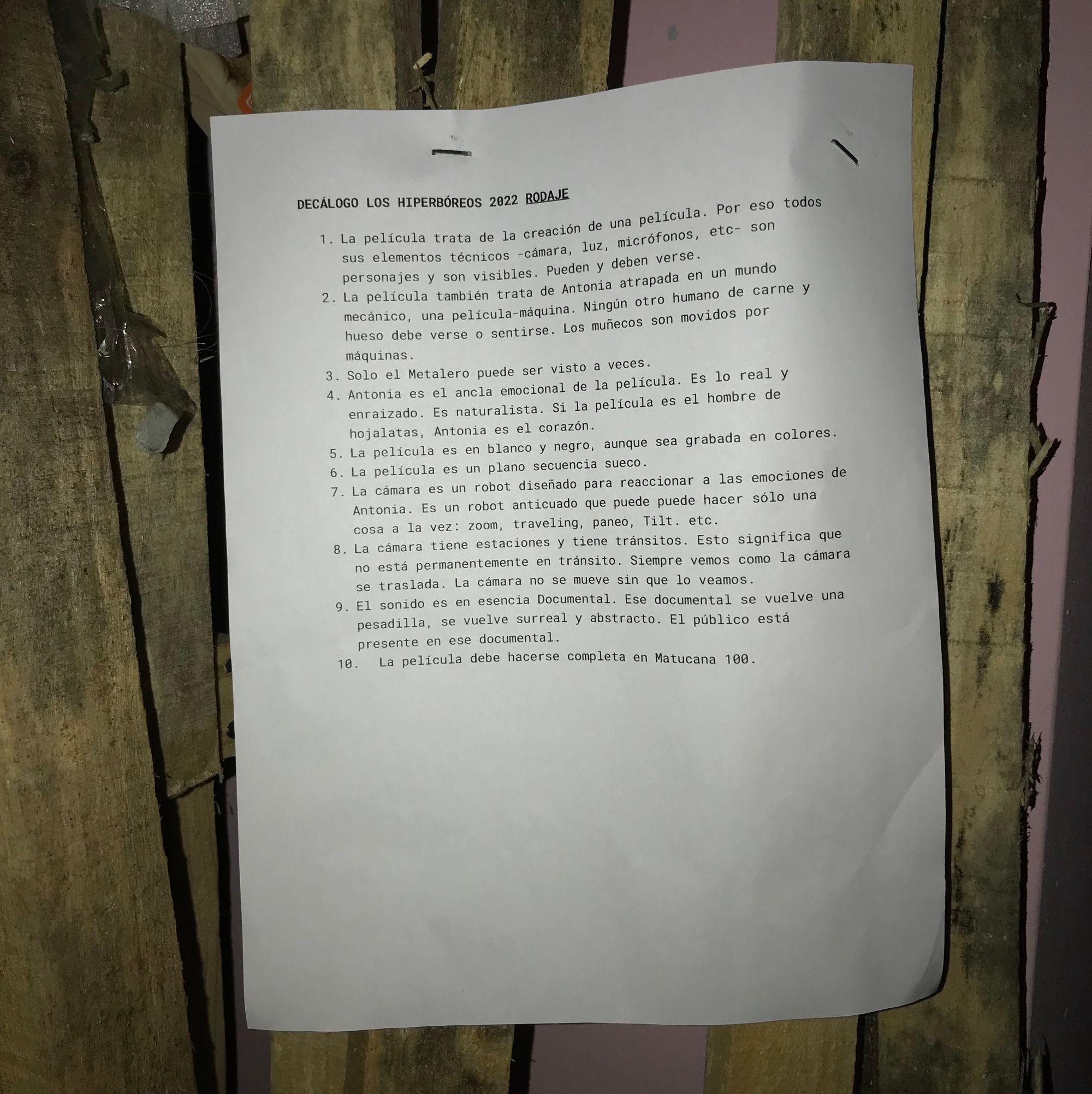
Every person needs to take one day away. A day in which one consciously separates the past from the future. Jobs, family, employers, and friends can exist one day without any one of us, and if our egos permit us to confess, they could exist eternally in our absence. Each person deserves a day away in which no problems are confronted, no solutions searched for. Each of us needs to withdraw from the cares which will not withdraw from us.
― Maya Angelou, Wouldn't Take Nothing for My Journey Now
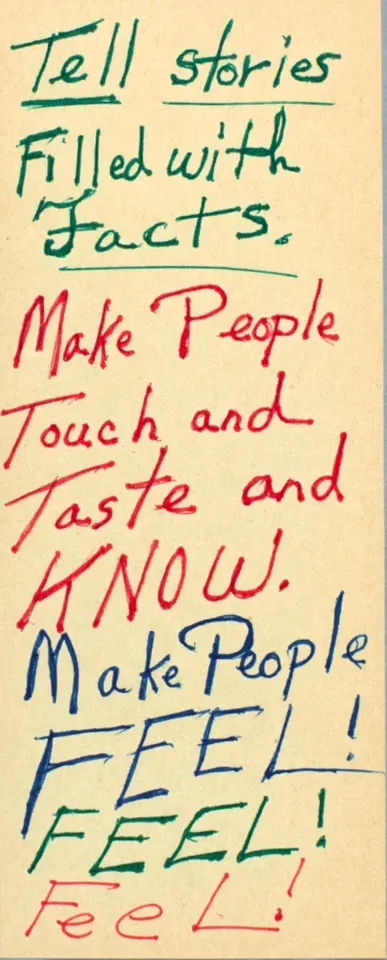
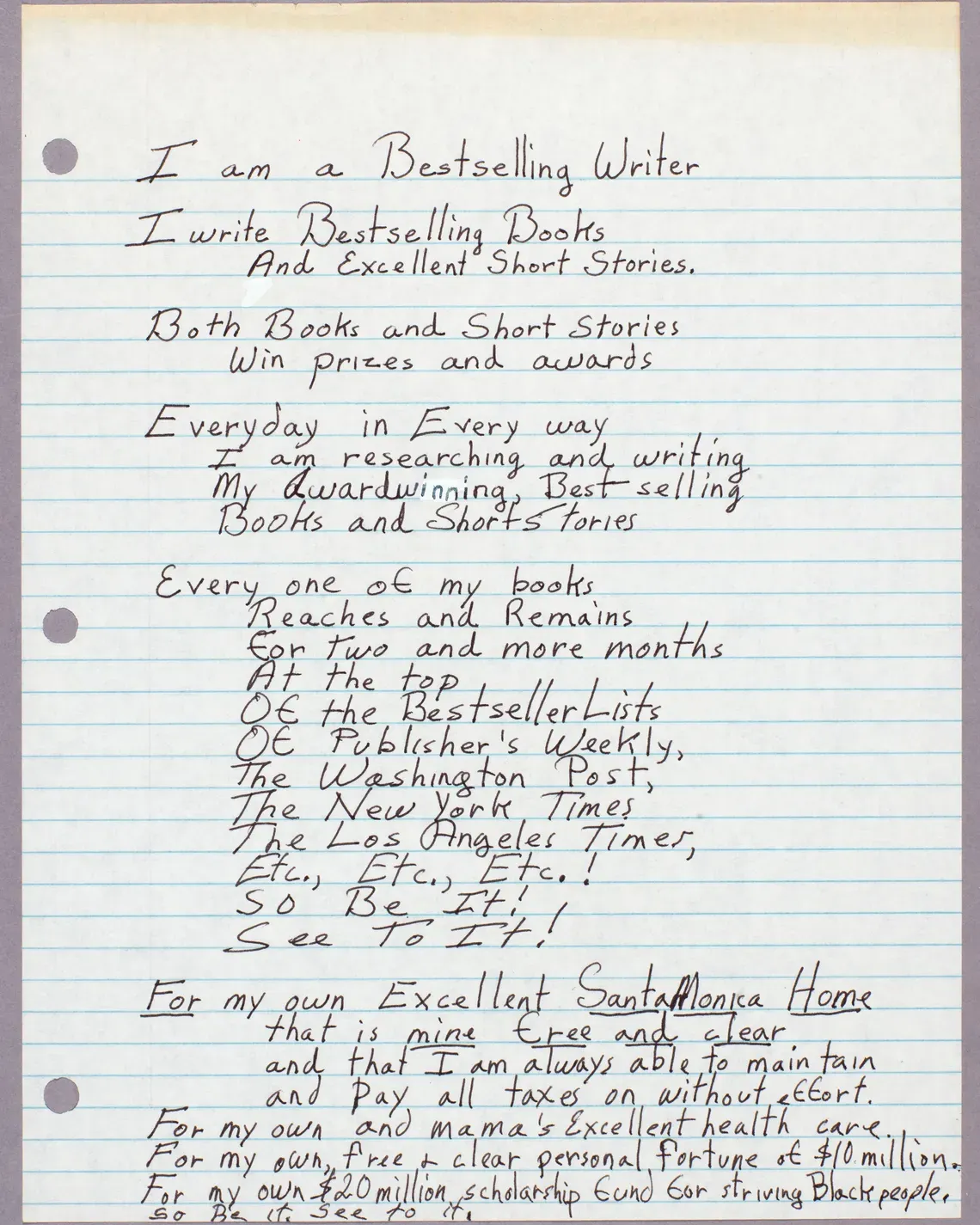
Reminder: make your rider & rewrite your artist statement. Before that next app/opp rolls around!
In the great uncertainty that is Art, we tend to cling to bits of advice and then make the mistake of following them absolutely, like a charm. But that is a way of switching off, of agreeing to be out of touch with our actual text.
So: when someone gives a bit of writing advice (“Don’t worry, WORK,” or “Show don’t tell,” or “Always be escalating”) we should think, “Yes, I’ll try this, to some extent, until it feels wrong. I will remember to always assess that advice per actual conditions, i.e., this particular story, and in light of my particular inclinations and talent.”
— George Saunders, “On Worry”
Important, I believe, to resist finality in one’s own work while assiduously working toward its completeness. Detrimental, I think, the dread of being passed on the left, as is the deluded and furthermore trivializing notion of one’s own work being an advance over any thing or any one. Truthfulness is crucial. A continuous self-criticism is demanded of the effort without which only non-art gets made, that is, manufactured. 'A poet would show little thought to say poetry is opposed to since it is added to like science,' insisted Zukofsky. So do I, insist. Consequently I would contest those writers whose end is (reviling-all-the-way) to prevail.
— C.D. Wright, "Cooling Time"
Layli Long Soldier recommends:
“I don’t have 5 things. I have only 1 right now… Prayer."
— Layli Long Soldier "on overcoming the anxiety of making creative work," interview by Brandon Stosuy

P.S. (addendum from 1/31/23):
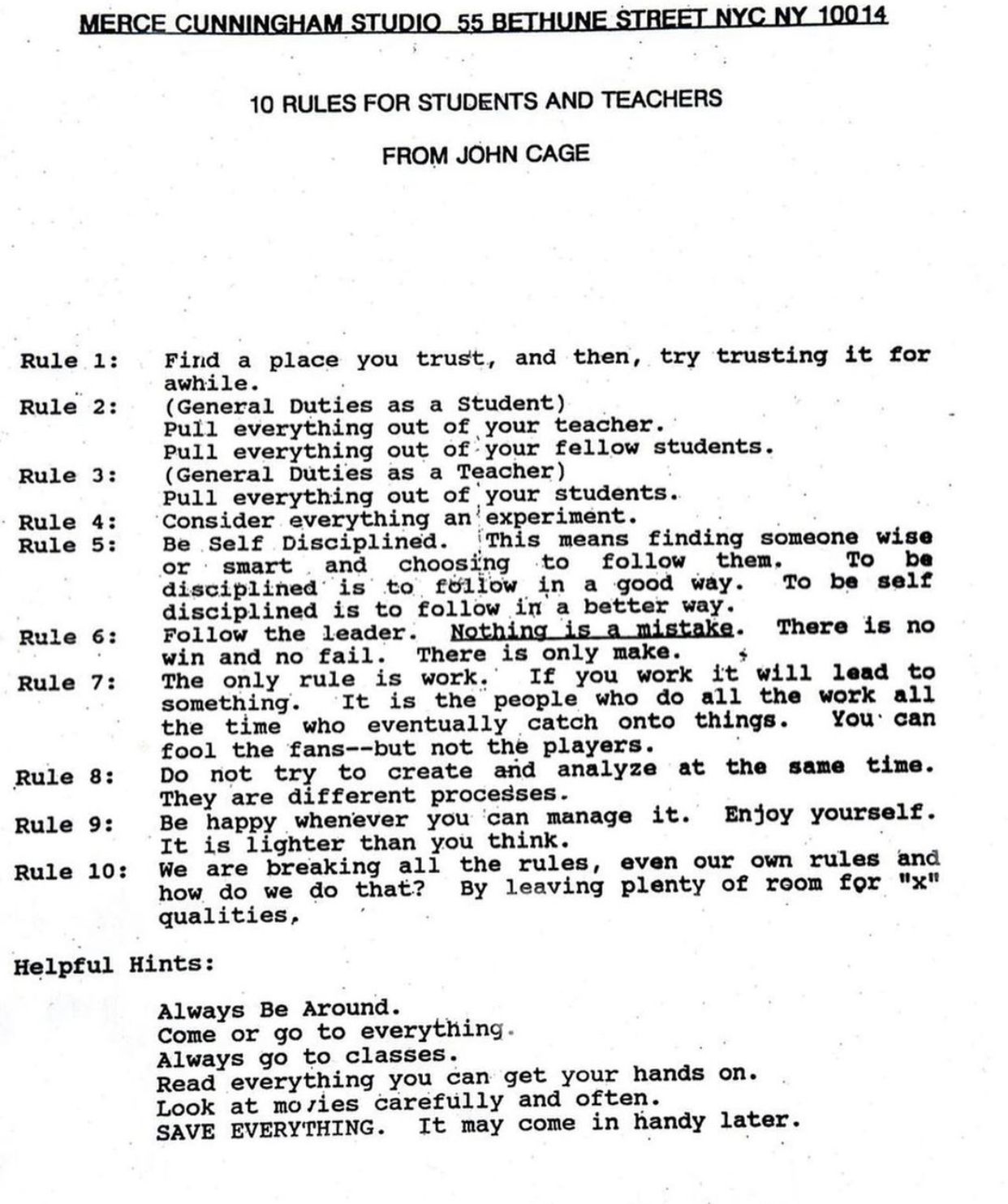
The Ever-Expanding Web
"The Spectacular Life of Octavia Butler," by E. Alex Jung
"2023 Yearly Horoscopes," by Alice Sparkly Kat
"The Need Is So Great," by Jim Moore
"For the Last American Buffalo," by Steve Scafidi
"The One-Touch Guide to Doing a Weekly Review: How I Go From Chaos to Clarity in 30 Minutes," by Tiago Forte
Benjamin's The Writer’s Technique in Thirteen Theses:
- Anyone intending to embark on a major work should be lenient with himself and, having completed a stint, deny himself nothing that will not prejudice the next.
- Talk about what you have written, by all means, but do not read from it while the work is in progress. Every gratification procured in this way will slacken your tempo. If this regime is followed, the growing desire to communicate will become in the end a motor for completion.
- In your working conditions avoid everyday mediocrity. Semi-relaxation, to a background of insipid sounds, is degrading. On the other hand, accompaniment by an etude or a cacophony of voices can become as significant for work as the perceptible silence of the night. If the latter sharpens the inner ear, the former acts as a touchstone for a diction ample enough to bury even the most wayward sounds.
- Avoid haphazard writing materials. A pedantic adherence to certain papers, pens, inks is beneficial. No luxury, but an abundance of these utensils is indispensable.
- Let no thought pass incognito, and keep your notebook as strictly as the authorities keep their register of aliens.
- Keep your pen aloof from inspiration, which it will then attract with magnetic power. The more circumspectly you delay writing down an idea, the more maturely developed it will be on surrendering itself. Speech conquers thought, but writing commands it.
- Never stop writing because you have run out of ideas. Literary honour requires that one break off only at an appointed moment (a mealtime, a meeting) or at the end of the work.
- Fill the lacunae of inspiration by tidily copying out what is already written. Intuition will awaken in the process.
- Nulla dies sine linea [‘No day without a line’] — but there may well be weeks.
- Consider no work perfect over which you have not once sat from evening to broad daylight.
- Do not write the conclusion of a work in your familiar study. You would not find the necessary courage there.
- Stages of composition: idea — style — writing. The value of the fair copy is that in producing it you confine attention to calligraphy. The idea kills inspiration, style fetters the idea, writing pays off style.
- The work is the death mask of its conception.



